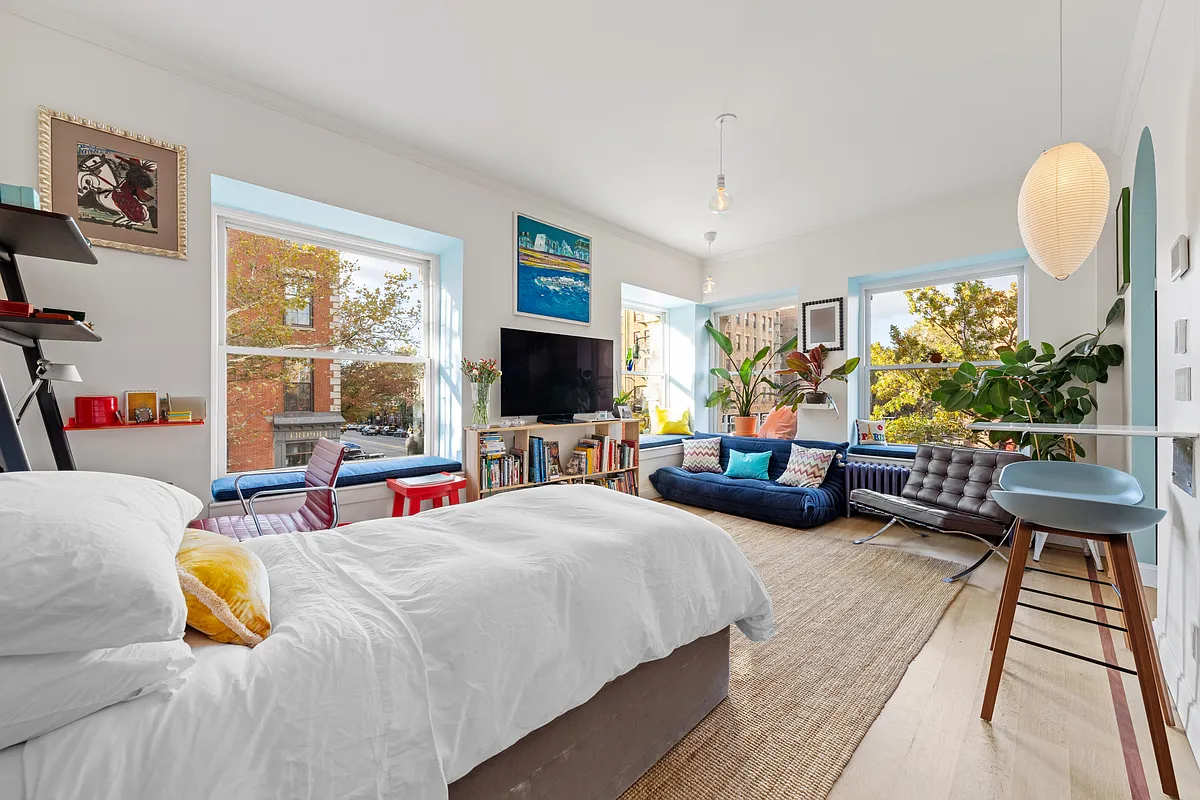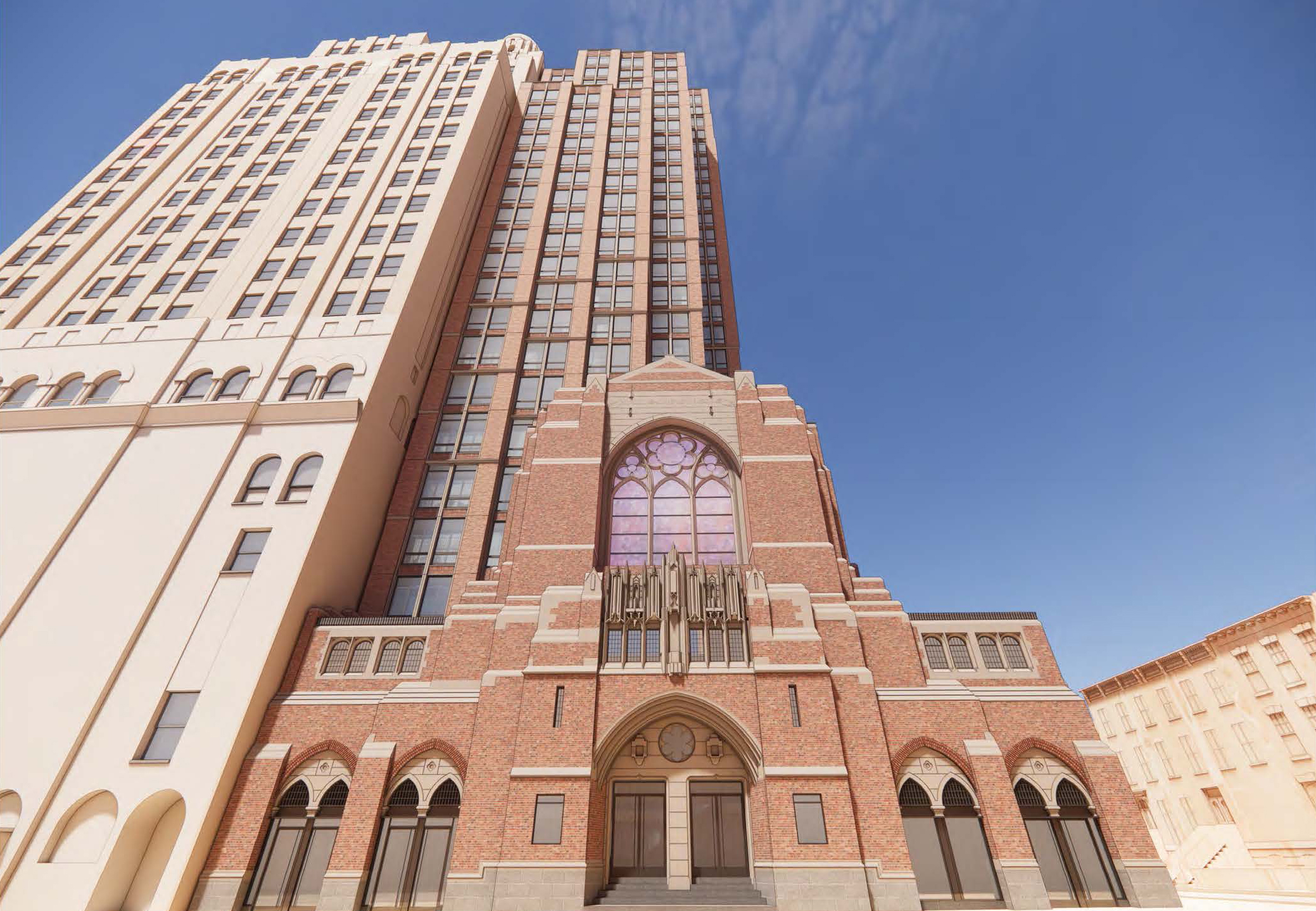All Equitied Up With No Place to Go
The mathematics behind today’s “Trapped in a Bubble” story makes perfect sense. Say you decided to buy a $200,000 studio three years ago with 50% down and were selling it now for $300,000 so you could trade up to a one-bedroom. Your $100,000 in equity would now be $200,000. Great, but that one bedroom that…

 The mathematics behind today’s “Trapped in a Bubble” story makes perfect sense. Say you decided to buy a $200,000 studio three years ago with 50% down and were selling it now for $300,000 so you could trade up to a one-bedroom. Your $100,000 in equity would now be $200,000. Great, but that one bedroom that was $400,000 when you bought your studio is now $600,000, so despite your increased equity, the mortgage you’ll need a mortgage that’s $100,000 higher than you would have three years ago to carry that one-bedroom ($400,000 instead of $300,000). Oh, and your income has not kept pace with the rise in housing prices. Doh!
The mathematics behind today’s “Trapped in a Bubble” story makes perfect sense. Say you decided to buy a $200,000 studio three years ago with 50% down and were selling it now for $300,000 so you could trade up to a one-bedroom. Your $100,000 in equity would now be $200,000. Great, but that one bedroom that was $400,000 when you bought your studio is now $600,000, so despite your increased equity, the mortgage you’ll need a mortgage that’s $100,000 higher than you would have three years ago to carry that one-bedroom ($400,000 instead of $300,000). Oh, and your income has not kept pace with the rise in housing prices. Doh!
Trapped in the Bubble [NY Times]





I don’t think your numbers make perfect sense. But anyway, I really have a hard time understanding who makes 100k off of a 1 bedroom place they’ve owned in Manhattan for the last couple of years. 300k would sound more likely to me. 100k? Seems so odd.
It, and the percentages surrounding it, get less round as the example extends to the one-bedroom purchase. This is a very silly discussion.
20% is a round number
anon at 10:58 — the problem is that in the scenario you describe I may have been able to afford a downpayment, but not $100K+ in renovations. (And trust me, I would not have been able to afford a move-in condition house in my neighborhood.)
Anyway, I am not saying the situation is good for homeowners at large, only that there are some, like me, who have benefited from exactly the same circumstances that hurt the people in the article. I don’t claim to have benefited from anything but dumb luck, though.
Well, selling your apartment will provide you with the downpayment to trade up. That is a good point, but you need a first time buyer to complete the cycle. As you said, the requirements for buying a coop is so steep that nobody, who does not own previously, can qualify. Eventually you will run out of people at the bottom. That is why a pyramid scheme will eventually fizzle out.
We used round numbers for the sake of explication. Obviously we know most people don’t put down 50%. Geez.
Scotty,
Seems to me if someone is buying a house in Clinton Hill, they probably have plenty of space. If you have a reasonable mortgage payment, sufficient space and like your home, then here’s what most likely happens if prices don’t return to current levels for ten years: you stay there for ten years, enjoy your home, and don’t lose a dime. Or you move, and if you haven’t stretched your finances outlandishly, you will find that the next place you buy will have dropped even more in value.
I realize I write this having just posted that I was able to renovate a house using the profits from my co-op. But the important thing is, I did not buy the co-op planning to make a dime off it, much less triple its value. I bought a place I could afford and was comfortable staying in indefinitely if need be. That’s what anybody buying a place, in any market, should do. And if you can’t afford to do that, you can’t afford to buy. Otherwise you’re taking a huge gamble.
Granted, some people are taking that gamble and those are the ones who should worry. And there is risk in a downturn for those forced to sell. (Though “forced” is often liberally defined.) But for most people, the best insurance is a simple rule: never, ever, buy your principle residence with plans that *require* you to make a lot of money off it, especially in the short term.
I agree with linus and have posted similar thoughts before on http://www.apartmenttherapy.com –
In response to this post:
“Last fall, I spent $280,000 on the studio apartment I now sit in. I remember telling my mom that I had gotten a great deal on the apartment, which was probably the moment I became a true New Yorker: the ability to spend over a quarter of a million smackers on one room, and actually brag about it.
After recently putting in a $17,000 kitchen, curiosity got the best of me and I invited two real estate agents into my apartment for a “free market evaluationâ€; I wanted to know what my apartment might be worth now – and if I’d overpaid for my little kitchen.
The first agent arrived and immediately told me that if I chose to sell today, I could probably get $419,000.
How somebody arrives at the figure “$419,000â€, I have no idea, but it was music to my ears. It is hard for me to believe that in less than a year my 450 square-foot apartment could have appreciated by $139,000. He also felt that putting in a $17,000 kitchen probably added $40,000 to the property. Weird math, happy owner.
The second agent arrived and asked if I was a decorator. Obviously, he’s a tasteful genius. He priced my apartment at a more modest $390,000, still a huge increase. In New York, he explained, it’s best to underprice a bit, as people will fight over an apartment and outbid each other.
In the end, I am a proud owner who is staying put in a great little apartment, which I try to think of as a one-room luxury hotel suite; the bed is in sight of the oven. But even if I could sell my apartment and live like a king in my native Pittsburgh, I still eat the $2.75 special at Gray’s Papaya three days a week”
and someone asking how this increase helps the owner, I responded with this:
“What can you do with an apt that has appreciated so much when everything else has? I have seen ppl ask that one before and they always ask it rhetorically when the answer is always it depends.
Let’s just talk apts here and not houses because the most affordable places are apts. With about 80% of the nyc apt comprised of coops, with these coop boards being very strict on financials (most in Manhattan below the 100’s will generally dictate 20% down) chances are good that the average middle class person in nyc is not going to be limited, in terms of cost of apt, by their income but by their savings.
When you’re talking condos you will need at least 10% for the deposit when you go to contract.
You will also need an additional 5-6% in cash to cover closing costs plus 6-12 months worth of maintenance charges (for coops) in cash or liquid assets (401K,IRAs do not count).
So you could have a couple like the two examples here
http://forums.newyork.craigslist.org/?ID=28377998
http://forums.newyork.craigslist.org/?ID=27611449
who have 175K and 200K household incomes but only 60K and 50K cash saved respectively. These days they could qualify for mortgages in the 800K to 1MM range but that won’t help them because their savings are too low. If they were buying a coop they would be limited to a $200K coop (20% dp plus 5% closing costs). If they were buying a condo they would be limited to around $330K (10% dp plus 5% closing costs). So let’s say they really wanted a 2BR apt in park slope. They go for around 550K-600K for coops. Both sets of couples could easily qualify for that kind of mortgage but they would need close to $150K to close. You can see where I’m going with this can’t you?
Had they bought something like TF’s apt when he did, they could sell today and have enough cash to buy what they really wanted.
That is what the increase gets you. The down payment on the place that your income could easily carry but you could never afford because no one can save that amount of cash in that short of a time unless they are an ibanker.
Other examples of where trading up works is when you are on a career path (sorry but ibanker springs to mind again but even teachers get hefy raises when they get promoted) that gives you large raises as you get promoted. The increase on your little studio gives you a big down payment on a bigger place just when your income increases enough to carry the bigger mortgage.
Other examples here
http://forums.newyork.craigslist.org/?ID=22285151”
Linus, good point – there are a lot of people who did what you did and have money now that they wouldn’t have had otherwise. But still, had prices climbed at a normal pace, along with incomes, it is likely you still would have made money (albeit not as much) on your co-op and been able to afford a house – it’s what people have been doing for years. You may have had to hold onto it a little longer for the equity, but it would have been a more usual situation than what’s been happening recently.